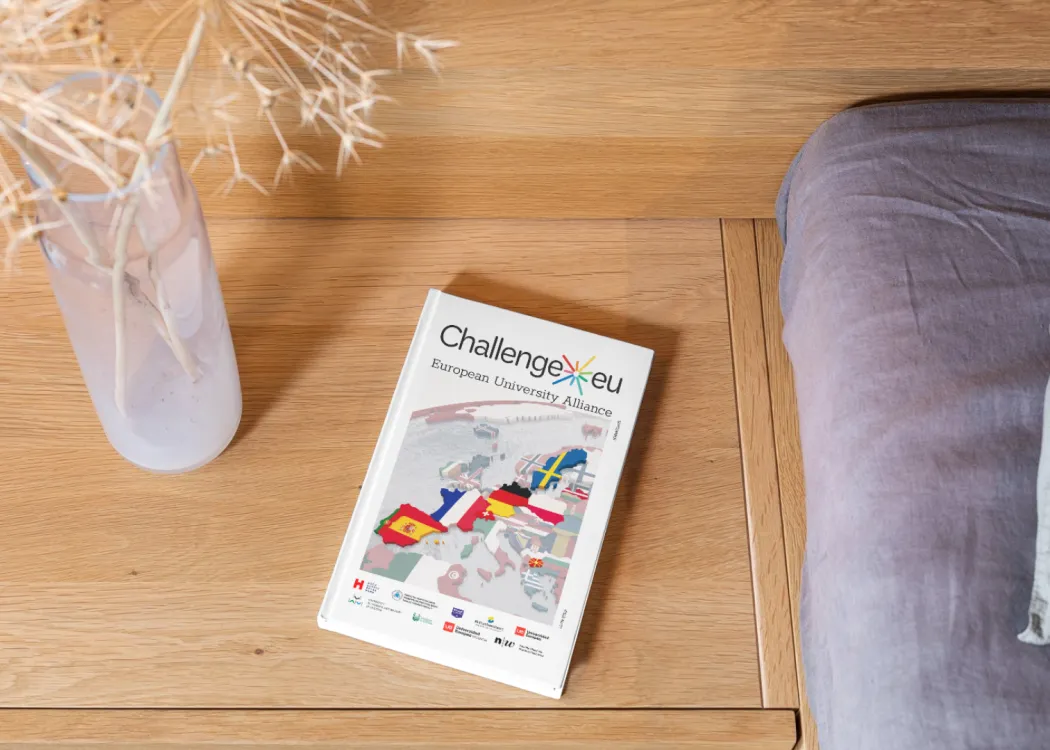24 October 2024
News
14 New European University Alliances
The fifth competition was concluded on June 28. This time, around 500 universities grouped in 60 international consortia competed for the status of a European University. Only 14 were selected for funding. Each alliance is allocated a budget of up to €14.4 million for four years. Joining the group of universities of the future also facilitates obtaining additional funds from international programs. Universities invited by the European Commission to join the European Universities have time until the end of September to sign the official document.
ChallengeEU Alliance
ChallengeEU is one of the newest alliances. This dynamic and pioneering coalition is dedicated to cultivating holistic, sustainable collaborations and engaging excellence across European universities. Comprising nine universities and an extensive network of stakeholders, ChallengeEU is on a mission to break down traditional academic boundaries and foster an innovative, inclusive ecosystem that empowers students as the vanguards of positive change.
The ChallengeEU Consortium Includes:
- Hochschule Offenburg (Offenburg, Germany) – coordinator of the consortium
- SEEU -South East European University (Tetovo, North Macedonia)
- ECAM LaSalle (Lyon, France)
- Mid Sweden University (Östersund, Sweden)
- Universidad Europea de Lisboa (Lisbon, Portugal)
- University of Warmia and Mazury in Olsztyn (Olsztyn, Poland)
- LBTU - Latvia University of Life Sciences and Technologies (Riga, Latvia)
- Universidad Europea de Valencia (Valencia, Spain)
- University of Applied Sciences Northwestern Switzerland (Brugg-Windisch, Switzerland) as Associated Partner
The ChallengeEU alliance also collaborates with the socio-economic environment. One of the key objectives is to engage partners from business, local government, and non-governmental organizations from nine countries in Europe. All partners are committed to the sustainable development of their societies and regions. The ChallengeEU alliance, encompassing approximately 83,000 students and 9,000 staff members, will support social, economic, and technological innovations that will impact the lives of about 25 million citizens.
Key Objectives of the ChallengeEU Alliance
- Transforming Regional European Universities: The focus is on transitioning from a "topic-driven" to a "challenge and impact-driven" approach in research, education, and innovation. The alliance will establish the ChallengeEU Academy, which comprises three pillars: Teaching, Training, and Talent Academy. This academy supports professional development for students, staff, and partners, offering joint academic programs, entrepreneurial skills for researchers, and fostering societal relevance in study programs. Engaging external stakeholders, the academy promotes lifelong learning and reciprocal learning, enriching the open innovation processes within the alliance. It will offer flexible online courses, open-access resources, alternative credentialing options, a pilot joint degree, interdisciplinary joint programs, and multiple/double degrees.
- Advancing Partnerships for Academic Excellence: Utilizing Open Science and Open Innovation methodologies, ChallengeEU will introduce a new model of knowledge transfer Multi-Actor Research & Knowledge Exchange Teams (M.A.R.K.E.T.s), revolutionizing partnership between Academia and Quadruple Helix stakeholders. These will serve as vibrant hubs where students, researchers, and diverse stakeholders converge to collectively tackle challenges, share expertise, and drive transformative advancements within their respective domains.
- Promoting Inclusive Education: By eliminating barriers to education and learning, ChallengeEU ensures access to quality education for all. The alliance will create an Open, Diverse, and Inclusive Campus (ODEI) and develop ODEI Strategy and Policy at every partner university.
- Establishing an Innovative Inter-University Campus: Strengthening collaboration, fostering mobility, and enhancing intercultural and language competencies within the alliance (among students, academics, and administrative staff) will be prioritized. This will be supported by establishing robust IT infrastructure.
- Fostering Collaborative (Trans)Regional Innovation Ecosystem: The ChallengeEU Alliance aims to cultivate lasting cooperation with stakeholders from all areas of the Quadruple Helix. Within three Smart Specialization Areas—Health and Well-being (SDG 3), Smart Digitalization (SDG 9), and Sustainable Futures (SDG 13)—the innovative concept of M.A.R.K.E.T.s will emerge, fostering transdisciplinary collaboration, innovation, and the co-creation of solutions across digital, green, social, and sustainable dimensions.
Collaborative Research, Studies, and Cooperation with Multiple Benefits
International partnerships provide enormous opportunities. The ChallengeEU alliance offers the academic community numerous new possibilities. Firstly, students and PhD candidates will be able to study not only in their own country but also at partner universities (ChallengeEU Academy), enhancing their knowledge and specific skills. Secondly, the universities in the alliance commit to organizing courses that allow academic youth to gain additional competencies, certified accordingly. Thirdly, both students and staff will participate in mobility, gaining new experiences and developing a network of contacts.
Fourthly, the joint initiative aims to address contemporary key challenges, including equality issues, with all partners involved in creating solutions for building inclusive academic communities. Fifthly, joint scientific research will certainly enhance the research and teaching potential of the universities. Students will have the chance to participate in large international projects and attend classes conducted by lecturers from various universities. Sixthly, the participating universities aim to strengthen collaboration with the economy, local government, and non-governmental organizations. This is also important for students who will have the opportunity to be closer to potential employers during their studies.
What are European Universities?
European Universities are ambitious transnational alliances of higher education institutions developing long-term structural and strategic cooperation based on shared values and agreed principles. The goal of this initiative is to educate a new, collaboration-oriented generation of Europeans and to build a strong identity based on European values. European Universities also aim to enhance the quality of higher education and strengthen its connections with the socio-economic environment. This cooperation will result in new quality of research and innovation across Europe, benefiting society and the economy.
In total, there will be 64 consortia operating under the banner of European Universities, comprising 560 higher education institutions from 35 countries, including all EU member states, as well as Iceland, North Macedonia, Norway, Serbia, Switzerland, and Turkey, along with Albania, Bosnia and Herzegovina, and Montenegro.



